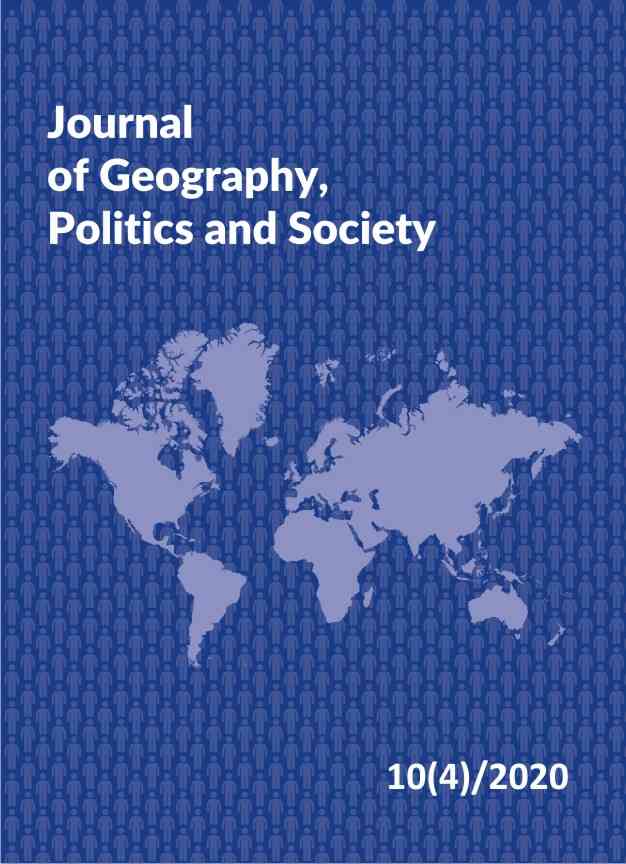Transformation of the conditions of socio-economic development of Azerbaijan in the post-pandemic period (by September 2020)
DOI:
https://doi.org/10.26881/jpgs.2020.4.01Keywords:
transformation conditions, economic development, post-pandemic period, oil industry, AzerbaijanAbstract
The global economic crisis and the spread of the pandemic virus in a short period have radically changed the world around people. The curtailment of production, the closure of different kinds of services, self-isolation, and the distribution of virtual contacts has become characteristic in the state of almost every country. Depending on the level of socio-economic development, not all countries are equally experiencing this difficult period of crisis in modern civilization. The spread of COVID-19 and the global economic crisis, accompanied by a sharp drop in oil prices, have had a significant impact on the socio-economic condition of the oil exporting countries. Azerbaijan, such a country facing these emerging problems, has taken steps to prevent the spread of the pandemic beyond the metropolitan region. Thanks to a balanced fiscal and monetary policy of the government, as well as the availability of sufficient foreign exchange reserves, the negative impact of the above factors has been minimized. The implementation of the oil strategy of the republic has created favorable conditions for the development of the non-oil sector of the economy. Participation in international transport and logistics projects contributed to the development of inter-district and intra-district transport infrastructures. An extensive network of transport and communication systems has favored the economic development of the regions of the republic. Despite the changing conditions of social economic development of the country, the process of creating infrastructure facilities continued. Of course, the new conditions have adjusted the implementation of state programs for the construction of new economic and socially significant facilities. Large financial deductions from the sovereign Oil Fund of the republic allowed for the shortest possible time to put into operation mobile hospitals, enterprises for the production of medical masks, as well as subsidies to support small and medium enterprises. The new picture more actualizes the development of the non-oil sector of the economy, especially the agricultural sectors. With this in mind, when developing a new strategy for the future development of the republic, one should take into account the lessons of the occurrence of previously unforeseen risks. This will mitigate the blow of new possible cataclysms and get out of the crisis situations with the least social and economic losses.
Downloads
References
“Azərbaycan 2020: gələcəyə baxiş” inkişafkonsepsiyasi (Eng. Development concept “Azerbaijan 2020: a look into the future”), 2012, https://president.az/files/future_az.pdf (accessed 15 June 2020).
-ci ilin yanvar-may aylarında Ümumi Daxili Mеhsul istehsalı (Eng. Gross Domestic Product in January-May 2020), 2020, Azərbaycan Respublikası Dövlət Statistika Komitəsi, https://www.stat.gov.az/news/index.php?id=4609asıdır (accessed 12 June 2019).
Bloom D., 2020, Pandemic, Downturn To Cost Entertainment Industry $160 Billion In Growth Over 5 Years, Forbes 21.05.2020, https://www.forbes.com/sites/dbloom/2020/05/21/entertainment-industry-160-billion-lost-growth-ampere-theaters-advertising-streaming/#42d2d0b77d95 (accessed 09 June 2020).
Brief#2: Putting the UN framework for socio-economic response to COVID-19 into action: insights, 2020, United Nations, https://reliefweb.int/report/world/brief-2-putting-unframework-socio-economic-response-covid-19-actioninsights-june-2020 (accessed 28 October 2020).
COVID-19 to Plunge Global Economy into Worst Recession since World War II, 2020, World Bank Report “Global Economic Prospects”, https://www.worldbank.org/en/news/pressrelease/2020/06/08/covid-19-to-plunge-global-economy-into-worst-recession-since-world-war-ii (accessed 11 June 2020).
Fung A., 2020, A new civic federalism, [in:] Coronavirus Will Change the World Permanently. Here’s How, POLITICO Magazine, https://www.politico.com/news/magazine/2020/03/19/coronavirus-effect-economy-life-society-analysis-covid-135579 (accessed 02April 2020).
Galvani A.P., Lei X., Jewell N.P., 2003, Severe acute respiratory syndrome: temporal stability and geographic variation in case-fatality rates and doubling times, Emerging Infectious Diseases, 9(8), 991–994, doi: 10.3201/eid0908.030334.
Gumel A.B., Ruan S., Day T., Watmough J., Brauer F., van der Driessche P., Gabrielson D., Bowman C., Alexander M.E., Ardal S., Wu J., Sahai B.M., 2004, Modelling strategies for controlling SARS outbreaks, Proceedings of the Royal Society B: Biological Sciences, 271(1554), 2223–2232. doi: 10.1098/rspb.2004.2800.
Guterres A., 2020, “The recovery from the COVID-19 crisis must lead to a different economy”. Launch of report on socioeconomic impacts of COVID-19, United Nations Covid-19 Response, https://www.un.org/en/un-coronaviruscommunications-team/launch-report-socio-economicimpacts-covid-19 (accessed 04 April 2020).
Kent E., 2020, Coronavirus Outbreak Forces Cancellation of Multiple Esports Events, Eurogamer, https://www.eurogamer.net/articles/2020-01-30-coronavirus-outbreak-forcescancellation-of-multiple-esports-events (accessed 28 October 2020).
Keogh‐Brown M.R., Wren‐Lewis S., Edmunds W.J., Beutels P., Smith R.D., 2010, The possible macroeconomic impact on the UK of an influenza pandemic, Health Economics, 9(11), 1345–1360. doi: 10.1002/hec.1554.
Knieps S., 2020, Will COVID-19 turn Germany’s export-oriented economy into a weakness?, Euroactiv, www.euractiv.comhttps://www.euractiv.com/section/economy-jobs/news/will-covid-19-turn-germanys-export-orientedeconomy-into-a-weakness/ (accessed 23 October 2020).
Lipsitch M., Cohen T., Cooper B., Robins J.M., Ma S., James L., Gopalakrishna G., Chew S.K., Tan Ch.Ch., Samore M.H., Fishman D., Murray M., 2003, Transmission dynamics and control of severe acute respiratory syndrome, Science, 300(5627), 1966–1970. doi: 10.1126/science.1086616.
Nicola M., O’Neill N., Sohrabi C., Khan M., Agha M., Agha R., 2020, Evidence Based Management Guideline for the COVID-19 Pandemic - Review article, International Journal of Surgery, 77, 206–216. doi: 10.1016/j.ijsu.2020.04.001.
The Order of the President of the Republic of Azerbaijan on a number of measures to reduce the negative impact of the coronavirus pandemic (COVID-19), 2020, Official web-site of President of the Republic of Azerbaijan Ilham Aliyev, https://en.president.az/documents/orders (accessed 14 June 2020).
Wang J., McMichael A.J., Meng B., Becker N.G., Hab W., Glass K., Wu J., Liu X., Liu J., Li J., Li X., Zheng X., 2006, Spatial dynamics of an epidemic of severe acute respiratory syndrome in an urban area, Bulletin of the World Health Organization, 84(12), 965–968, doi: 10.2471/blt.06.030247.
Wilson J., 2020, The economic impact of coronavirus: analysis from Imperial experts, Imperial College London, https://www.imperial.ac.uk/news/196514/the-economic-impact-coronavirus-analysis-from/ (accessed 02 November 2020).
Yu H.-L., Kolovos A, Christakos G., Chen J.-Ch., Warmerdam S., Dev B., 2007, Interactive spatiotemporal modelling of health systems: the SEKS-GUI framework, Stochastic Environmental Research and Risk Assessment, 21(5), 555–572. doi: 10.1007/s00477-007-0135-0.
Zelcer M., 2020, Kto poslednij? Kakie strany vyjdut iz krizisa pozže drugih (Eng. Who is last? Which countries will emerge from the crisis later than others), Forbes 25.05.2020. https://www.forbes.ru/biznes/401205-ktoposledniy-kakie-strany-vyydut-iz-krizisa-pozzhe-drugih (accessed 05 June 2020).

 Academic Scientific Journals
Academic Scientific Journals




